Stephen Linger, Vietnam Leaker, Missing
I received an odd e-mail a bit ago from Mr. Ernie Linger, brother of Stephen W. Linger:
Does the name Stephen W. Linger mean anything to you? Are you familiar with The Silent Coup by Lynn Colodny and The Price of Power by Seymour Hersh? My brother Steve is mentioned in those books. As of today, he is missing. His disappearance may be totally unrelated to the contents of those books… yet, maybe not.
My questions are:
1) Do you know anymore than you did in February about the identity of the “gravely ill” ‘potential’ Deep Throat?
2) My brother mentioned many people in the media, etc. that he has had conversations with – are you one of them?
3) Why would anyone care, so many years after the events of the two aforementioned books, about a single, discharged Army Specialist E-5 who only ‘verbally’ passed info about Kissinger to Bob Woodward?I’m looking for answers that may help resolve my brother’s ‘disappearance’.
My answers:
1) Don’t I wish.
2) Nope, I’d never heard of him before the e-mail.
3) No reason I can think of. The events in question took place 34 years ago.
The Price of Power came out 22 years ago. Here’s an excerpt:
Stephen W. Linger was an enlisted man who believed utterly in the rectitude of the Vietnam War and the fight against communism when he joined the Army as a volunteer. His high IQ and his patriotism projected him in early 1970 into one of the most secret jobs in the Pentagon-handling top secret and “Eyes Only” messages for the backchannel communications link of the Joint Chiefs of Staff. The link, formally known as the Digital Information Relay Center, provided the military with a secure way of exchanging informal single-copy messages not meant to be filed or retained in any form. In a world of secret badges and secret rooms, the Relay Center stood- at the pinnacle. It processed some of the most highly classified communications intelligence in the United States government-including intercepted material from the Soviet Union-and it handled messages between the highest military commanders. It was a vital means of communication for Henry Kissinger, who could relay messages to field commanders in Saigon and elsewhere without the State Department’s knowledge and even without the knowledge of Laird or any of his aides in the Department of Defense.
Linger was thrilled at his assignment and the inside look it gave him into the government’s activities. Over the months, however, as he began to perceive the difference between what was happening in Southeast Asia and what the newspapers were reporting, he became distressed. By early 1971, Linger was in touch with Jack Anderson, the newspaper columnist, and had begun to relay some of the Relay Center’s information to him. Anderson’s columns that spring and summer were to stagger Washington-and Henry Kissinger and Richard Nixon.
But on the evening of March 18, 1970, Stephen Linger was still new to his job, and the thought of providing information to a newspaper columnist was far off. Nonetheless, he was curious about what was really happening in Cambodia. There was a high-priority message from an overseas American embassy late that night: Sihanouk, in Moscow, had pleaded with a senior American official to “help me out.” Linger followed his usual custom with such messages: He forwarded a copy for immediate dispatch to Kissinger’s office and telephoned aides of General Wheeler, chairman of the Joint Chiefs of Staff, who would have to wake him up and read him the message. Linger’s duty hours were over before an answer came back, but the next day he dug out the file to see what the United States government had decided to tell Sihanouk. The message, when he did locate it, was one he would never forget: America had decided to adopt a “laissez faire” attitude. “The basic thrust of the message was ‘lay off and let Sihanouk get overthrown.’ ” Linger remembers. And there was other immediate backchannel traffic from Washington to Saigon in which the White House and the Pentagon “kept talking about the military requirements for the new regime.”
Interesting. One hopes Linger is safe.

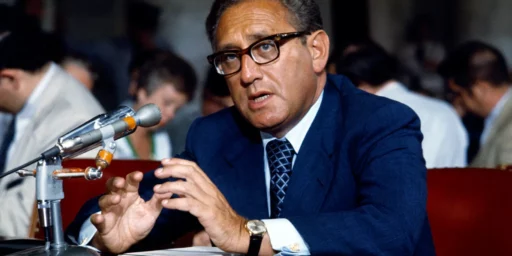
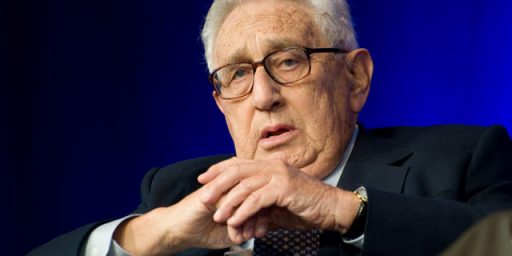
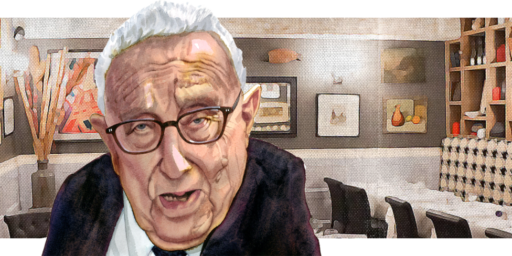
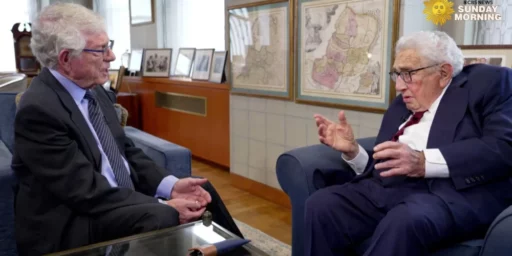
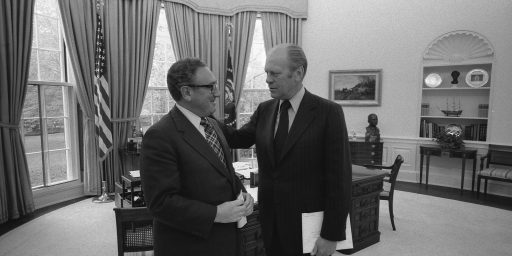
My brother was found dead Tuesday night, May 10, 2005. I was notified Wednesday morning.